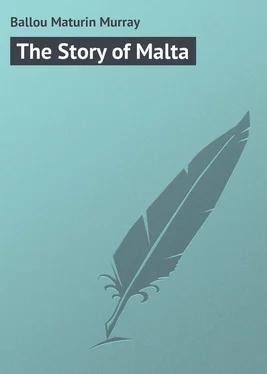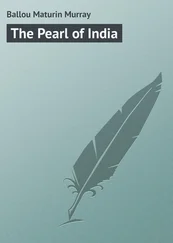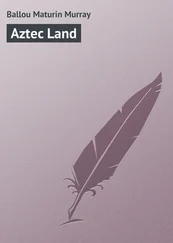Maturin Ballou - The Story of Malta
Здесь есть возможность читать онлайн «Maturin Ballou - The Story of Malta» — ознакомительный отрывок электронной книги совершенно бесплатно, а после прочтения отрывка купить полную версию. В некоторых случаях можно слушать аудио, скачать через торрент в формате fb2 и присутствует краткое содержание. Жанр: foreign_prose, на английском языке. Описание произведения, (предисловие) а так же отзывы посетителей доступны на портале библиотеки ЛибКат.
- Название:The Story of Malta
- Автор:
- Жанр:
- Год:неизвестен
- ISBN:нет данных
- Рейтинг книги:5 / 5. Голосов: 1
-
Избранное:Добавить в избранное
- Отзывы:
-
Ваша оценка:
- 100
- 1
- 2
- 3
- 4
- 5
The Story of Malta: краткое содержание, описание и аннотация
Предлагаем к чтению аннотацию, описание, краткое содержание или предисловие (зависит от того, что написал сам автор книги «The Story of Malta»). Если вы не нашли необходимую информацию о книге — напишите в комментариях, мы постараемся отыскать её.
The Story of Malta — читать онлайн ознакомительный отрывок
Ниже представлен текст книги, разбитый по страницам. Система сохранения места последней прочитанной страницы, позволяет с удобством читать онлайн бесплатно книгу «The Story of Malta», без необходимости каждый раз заново искать на чём Вы остановились. Поставьте закладку, и сможете в любой момент перейти на страницу, на которой закончили чтение.
Интервал:
Закладка:
Italian is the official tongue of the law courts, though English is gradually superseding it. Why the former language should be persisted in, it would be difficult to say, though it is the key to all those common in the Levant. The Maltese are not Italians, and never were. Not to put too fine a point upon the matter, they are Arabs in their manners, customs, and language. When the Knights of St. John were sovereign here, nearly four hundred years ago, there was a certain degree of consistency in the adoption of Italian as the current or court language. The intimate relations of the order with the Pope and with Rome were a predisposing influence which could not but have its effect, besides which there was the close proximity of the mainland of Italy; but to continue it as the recognized language of the courts to-day is to sustain an anomaly.
More is known of the Arab dynasty than of any of its predecessors. As soon as this people had gained possession of Malta, they promptly exterminated the Greeks, putting all the male inhabitants to the sword, while making slaves of their wives and children. They were careful to conciliate the native population, even permitting them to worship after the dictates of their own religious convictions, which is a very rare concession among Mohammedans, where they have the power to do otherwise. The Arabs chiefly prized this group of islands for the safe harbors which it afforded in the pursuit of their one occupation, namely, that of undisguised piracy. Their constant raids upon the coast of Italy caused many expeditions to be fitted out from that country for the purpose of driving them away from their stronghold; but as we have said, the Arabs maintained their sovereignty here for over two hundred years. Strong defensive works were erected by them on the present site of Fort St. Angelo, at the entrance of the harbor of Valletta, on the island of Gozo, and at the old capital of the group, Città Vecchia, also known as Cività Notabile, – "Illustrious City," which appellation, in the days of its glory, was probably not inappropriate. This old city, near the middle of the island, was a fortified metropolis centuries before the Arabs came, its defensive walls being contracted by them so that they might be the more easily manned and defended. To visit Città Vecchia to-day is like the realization of a mediæval dream.
A glance at the map will show the reader that the strategic importance of these Maltese islands is almost unequaled. Lying in the middle of the vast and famous inland sea, – happily designated as the cradle of civilization, – within a brief sail of three continents, sixty miles from the shore of Sicily, one hundred and ninety from the mainland of Italy, two hundred from the nearest point of Africa, and equidistant from Constantinople and Marseilles, Valletta has naturally become a popular port of call, as well as an important coaling station for many lines of steamships. This is particularly the case with those bound to or from England and India by way of the Suez Canal and the Red Sea. The opening of that famous and all-important waterway insured the lasting commercial prosperity of the Maltese group. From that day to the present its material growth has been steadily progressing and its population increasing. It is well known how much the Suez Canal promotes the commerce of Europe and Asia, but comparatively few people realize that we have in America a similar means of transportation which is the avenue of a much larger marine traffic. We refer to the Sault Ste. Marie Canal, which connects the State of Michigan with the Canadian Province of Ontario. The aggregate of the tonnage which annually passes through the American artificial river is shown by government statistics to far exceed that of the great canal which connects the Red Sea and the Mediterranean.
Malta is the halfway station, as it were, of the P. & O. line between London and Bombay; but there is other regular communication between the group and England, as well as mail steamships running to Marseilles, Alexandria, Belgium, Tripoli, and Tunis. Occasionally a single passenger or a small party of tourists stop at Valletta until the next packet touches here, enabling them to resume their journey east or west; but it is rather surprising how few visitors to Malta remain long enough to see one half of its many objects of interest, while others, who might easily do so, will not even take the trouble to land. One can sail half round the globe without finding a locality from which such a store of historic information and pleasurable memories can be brought away, or whose present aspect is more inviting. People who have no poetic sense or delicate appreciation will not find these qualities ready furnished for them, either at home or abroad. The dull, prosaic individual whose ideas run only in a practical groove, who lives purely in the commonplace, will be impressed by travel much after the fashion of the backwoodsman from Maine, when he saw Niagara Falls for the first time.
"Great Scott!" said he, gazing approvingly upon the moving aqueous body, "what a waste of water-power!"
A somewhat similar scene, of which the author was a witness, is well remembered.
"Are you going on shore, madam, while we take in coal?" asked the captain of a P. & O. steamship, addressing one of his lady passengers, who was en route from India to England.
"Can I get me a dear little Maltese dog there for a pet?" asked the lady in response.
"It is doubtful," was the answer. "The animals you refer to are now very scarce in these islands."
"Then I think I'll remain on board," rejoined madam. "There's nothing on the island worth seeing, I believe."
"Some persons come thousands of miles solely to visit the place," was the captain's quiet reply. "Its history is very curious."
"Are there any palaces?"
"There are over half a hundred edifices so called, though they have nearly all been diverted from their original purpose by the present government."
"They have nice old lace here, I am told. But one can get the same thing in London, you know."
"Oh, yes, and perhaps you will be able to find a 'puppy' to your liking, in London," said the sarcastic captain.
"I think I'll be content with reading about the place," was the final response of the obtuse passenger.
As to Gibraltar, that gray old solitary rock lying about a thousand miles to the westward of the Maltese group, and looming to a height of fourteen hundred feet, it is a far less attractive place, though among passengers generally there seems to be a different opinion. Here travelers usually manage to make a break in their sea voyage, and to remain a couple of days or more to examine the dreary old fortress and garrison town. We say it is far less attractive than Malta: as regards its past or present, it bears no comparison to this group. With the exception of the old Moorish castle which overlooks the town, there is not a single edifice in Gibraltar with any pretension to architectural merit or antiquarian interest.
The Maltese dog, about which the lady passenger inquired, is a sort of spaniel with long, silky, slate-colored hair, which hangs down from its head and body, touching the ground. It has in the past been much esteemed by royal families as a lapdog, and is of a very ancient breed, being conspicuous upon old Roman monuments. It is spoken of by the historian Strabo, but it seems to have almost entirely disappeared in our time, as the captain remarked. We saw an indifferent specimen offered for sale in Valletta, for which ten pounds sterling was demanded.
The port of Valletta contains two marine docks, capable of receiving ships of the largest tonnage, and is resorted to by both naval and commercial shipping for needed repairs, while it is also the headquarters of the British Mediterranean war fleet. The aggregate tonnage of vessels entering and clearing is double that of Gibraltar. As regards social life, and the usual associations of a commercial capital, Valletta is far and away in advance of the City of the Rock. One comes quickly to this conclusion upon comparing the commonplace Water-port Street of Gibraltar with the unique Strada Reale – "King Street" – of Valletta. The former is like a dull, narrow lane in an English seaport town, while the latter, full of life and color, resembles a picturesque boulevard in an Italian or French capital. Each is, however, above all else a place of arms; everything is and has ever been made subservient to this idea.
Читать дальшеИнтервал:
Закладка:
Похожие книги на «The Story of Malta»
Представляем Вашему вниманию похожие книги на «The Story of Malta» списком для выбора. Мы отобрали схожую по названию и смыслу литературу в надежде предоставить читателям больше вариантов отыскать новые, интересные, ещё непрочитанные произведения.
Обсуждение, отзывы о книге «The Story of Malta» и просто собственные мнения читателей. Оставьте ваши комментарии, напишите, что Вы думаете о произведении, его смысле или главных героях. Укажите что конкретно понравилось, а что нет, и почему Вы так считаете.












